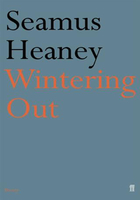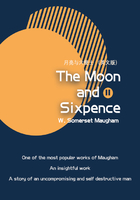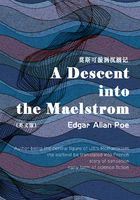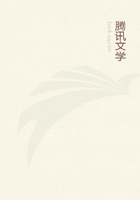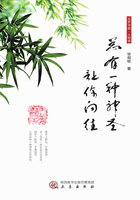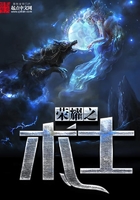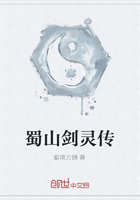INTRODUCTION
WHO REALLY RULES AMERICA
In the 1980s comic film, Moscow on the Hudson, a visiting Russian defects to America while touring with his Soviet group in a Manhattan Bloomingdale's. The Russian, played by Robin Williams, rejoices in his newfound freedom. But as he learns about his new country, he gets confused. He's free to shop at Bloomingdale's but he can't afford it. He appreciates that Americans are free to vote in their leaders, but he can't tell the "bad guys" from the good guys. In the Soviet Union, at least you knew who the "bad guys" were and you had no doubt that they ran the country.
A friend of mine who immigrated from Eastern Europe tells me he feels a bit like Williams. In the Soviet era, everyone in the Eastern Bloc knew who was running the show. Nobody believed in their phony elections. Few in East Germany or Poland thought their gray, aging presidents in their big bulky suits were anything but puppets of Soviet rulers. And nobody believed the newspapers or television because everyone knew they were pure propaganda.
In the United States, my friend says, things are much more confusing. There are "real" elections, but he isn't sure who is really running the country. Is it the president? Is it the Republican Party? Is it "special interest" groups playing behind the scenes? Is it truly the American public?
Many of my students at Boston College are beginning to ask similar questions. They know the president—currently George W. Bush—has great power but they are not sure if he is really making the decisions. They cannot answer with confidence the questions about who really rules America. They are not sure about what stories to believe in the media. They are not sure why the country has gone to war in Iraq. They are not sure that democracy is still alive and well and they wonder whether their vote matters.
This is not the way democracy is supposed to work. Democracy should be transparent. It should lead voters to have faith that the leaders they elect are in charge, that these leaders are accountable to the people, and that the media are not publishing propaganda. They should be getting the truth about who rules their country—and it should be the people themselves.
I am writing this book because I think Americans are not getting the real story. I believe their questions and fears are based on reality, reflecting a dangerous deterioration of American democracy. I am not a conspiracy theorist and I am disturbed by the wild conspiracy ideas floating around on the Internet and in ordinary conversation. But there is a system of hidden power in America.
This book explains the hidden power structure, but it is not just the existence and power of the ruling regime that is hidden. The capacity of ordinary Americans to make the kind of democratic change that inspired Thomas Paine and Thomas Jefferson has itself become veiled. My goal in this book is to pull back the curtain to reveal both forms of hidden power: the power of those who govern and the power of ordinary Americans like you, the reader. The hidden rulers are not the small cabal of evil plotters imagined in most conspiracy theories but are deeply entrenched social forces and institutions with far more power and sophistication. The hidden power of the people is part of a democratic tradition of political participation and dissent that has been represessed and forgotten. When the curtain is torn down, the promise of American freedom that Robin Williams was looking for can become real.
THE REGIME
In discussing the hidden power of who really rules America, I am talking about a complex, historically entrenched system that is now almost seamlessly integrated with our elections and our official leaders. I call it a regime. When American leaders talk about regimes, it is usually about the evil governments of North Korea, Iran, Syria, or Cuba. As U.S. power brokers see it, a regime is a repressive government somewhere else in the world that the American public ought to distrust. Regime change, by the same logic, is about how the United States can rid the planet—as it did Saddam Hussein's regime in Iraq—of a government that it portrays as a threat to civilization.
The dictionary defines a regime as "a manner, method, or system of rule or government." If we take this more sober approach and view any "system of rule" as a regime, then the U.S. government is also a regime and the history of the United States—as of other nations—can be seen as a succession of regimes. American regimes are entrenched systems of power and ideology, and regime changes at home, while not revolutions, are great dramas, creating seismic shifts in power and social values.[1]
Our current regime is a corporate one, and I start this book by describing what a corporate regime is and how it is weakening our democracy. This is the third corporate regime in American history and, while more global and hazardous than its predecessors, it is not entirely new.
Theodore Roosevelt points to a key difference between our corporate democracy and a dictatorship. In a dictatorship, the real government is visible. In our democratic regime, hidden power reigns.
THE INVISIBLE GOVERNMENT
"Behind the ostensible government sits enthroned an invisible government owing no allegiance and acknowledging no responsibility to the people. To destroy this invisible government, to befoul the unholy alliance between corrupt business and corrupt politics, is the first task of the statesmanship of the day."[2]
PRESIDENT THEODORE ROOSEVELT
The roots of our current regime lie in the Gilded Age of John D. Rockefeller, J. P. Morgan, and other early captains of industry, who helped shape the first corporate regime, and in the Roaring Twenties of Warren Harding, Calvin Coolidge, and Herbert Hoover, the leaders who presided over the second corporate regime. Conceived in the 1970s and shaped by the election of President Ronald Reagan in 1980, the current corporate regime has been steadily consolidating power, whichever party is in office. The result so far: profits grow and democracy shrinks. Bush has pushed the envelope, taking the regime in more radical directions as Washington becomes a money swamp and people like you and me have too many days when we feel helpless to change it.
The American system wasn't supposed to work this way. The Founders crafted the Constitution to ensure that "We, the People" would have a voice in our own affairs—and in those of the nation. The Constitution embraced an elaborate set of checks and balances that were to separate government agencies and prevent concentration of private power. James Madison, the author of the Constitution, wrote that "There is an evil which ought to be guarded against.… The power of all corporations ought to be limited. … The growing wealth acquired by them never fails to be a source of abuses."[3] In today's regime, the world's biggest global firms have accomplished what the Founding Fathers most feared. They have hollowed out the institutions that enabled ordinary Americans to have a say in how their land is governed. To cover up this hijacking of our constitutional and democratic gains, the regime has targeted you and me with a classy Madison Avenue arsenal of manipulation techniques—including democratic rhetoric and practices that have helped hide the very existence of the regime.
FROM THE ELECTION TRAP TO REGIME CHANGE
Most Americans understand that individual corporations—such as Nike, Wal-Mart, General Motors, and Citigroup—have great power. But they see only the skimpiest outlines of the hidden connections that weave together these huge companies with one another, with the political leaders of both parties, with the media, with schools and hospitals, and with the military—the systemic connections that create a regime. Because they barely see the shadows of this ruling system, it is even harder for them to see their own hidden power to create regime change.
In all nations, regimes spin elaborate myths that disguise their own power. Sometimes this comes in the form of obvious propaganda systems. In such societies, it is actually easier, as Robin Williams discovers, to figure out who is ruling and the lies they are telling. In democracies like the United States, it is much harder to tell who really is in charge and to distinguish truth from propaganda. This is partly because a corporatized government and media work together to create and market some of the world's most sophisticated deceptions and illusions. It is also because the regime is so intertwined with democratic rhetoric and procedures, and because people see democracy and change itself as tied mainly to voting the bums out of office.
This linking of power and change with winning elections is part of a set of misperceptions about democracy that I call the Election Trap. It has taken root among Democrats and Republicans, reds and blues, liberals and conservatives, even many radicals and libertarians. In short, nearly all Americans are ensnared in the Election Trap, and I have discovered myself sometimes seduced into it, too.[4]
The Election Trap inflates and distorts the role of the horse race in democratic politics. It makes near-term elections the primary object of political struggle and electoral victory the criterion for measuring power. Strategically, winning becomes everything. The Election Trap was on full display during the 2004 presidential elections, most tragically by the Democratic Party. Party leaders and most voters in the Democratic primaries selected John Kerry as their nominee because they knew he was a war hero and thought he had the best chance of winning. They didn't know much else about him. The philosophy of the party was summed up in one phrase: "Anybody but Bush."
The Democrats were caught—like a hungry mouse who sees nothing but the cheese in the mousetrap—in the Election Trap. The Party was focused like a laser on winning the election. It would choose anyone who could win, even if ordinary voters knew virtually nothing about what he stood for. This has been the story not just of Kerry but of the Democratic Party leadership over most of the last three decades. Its whole identity was about winning. This led to two predictable consequences. First, it led the party to lose the elections. Second, it meant that even if the Democrats had won, the party would not have created regime change.
The problem was not that Kerry and other Democrat leaders tried so hard to defeat Bush and win the election. It was that their obsession with winning helped undermine their ability to set forth a principled agenda that might have actually persuaded people to vote for them. For the Democrats to win, they have to convince ordinary citizens that they are going to help make their lives better. They need a philosophy of governing and of regime change, not just of winning. The Republicans are better at the horse race, with more efficient operatives and hacks, more money, and more sophisticated propaganda. The politics of the Election Trap almost always favor Republicans, especially in the current era where elections are driven by money. Given these realities, the Democrats could have won recent elections only if they had actually advanced a politics of conviction.
The sad Democratic experience in 2004 is just one example of the way the Election Trap works. The larger story is about how democracy itself has become a vehicle for undermining itself. The regime is the winner and the people the loser.
The main catalysts of regime change in America have not been parties glued to the next election, but social movements that operate on the scale of decades rather than two- and four-year electoral cycles. Political parties have historically become agents of democratic change only when movements infuse the parties with their own long-term vision, moral conviction, and resources. Abolitionists, suffragettes, minorities, or labor movements have sometimes succeeded in creating more democratic systems, as in the New Deal. The lessons of their past successes for today is one major theme of this book. Evangelical religious groups and social movements of corporations themselves have created their own forms of regime change, most recently in 1980 when they came together to create the current governing regime. They also have much to teach us about hidden power and how to change it.
HIDDEN POWER, DEMOCRACY, AND HEGEMONY
Hidden power exists in many societies, but, as Teddy Roosevelt pointed out, it can be particularly severe in capitalist democracies. Our political leaders and millions of Americans celebrate the increasing spread of elections around the world. They believe these new elected regimes make power transparent and give people far more democratic control over their own nations and lives. This has some truth in many countries, and our celebration reflects how we understand our own democracy. The cherished sovereignty of "we the people" is enshrined in our own elections, and we yearn to believe in it. But looking behind the parchment and ideals, we see that popular control in our own democracy and in much of the world is increasingly a fantasy.
Part of the disconnect between democratic ideals and reality arises out of the nature of capitalism. In every society, but especially in capitalism, it is impossible to separate economic and political power. As Karl Marx, the most famous critic of capitalist societies, observed more than a century ago, setting up formal political mechanisms for representative democracy—including constitutions, elections, and rule of law—does not ensure that the people's elected representatives will be accountable to them; in fact, Marx believed that the whole point of capitalist democracy was to create a visible government as a cover for the invisible one.[5] If economic power is skewed, and the gap between rich and poor is great, elected leaders will have other masters in the shadows and true democracy will wither. In a different context, Thomas Jefferson also saw how inequality shaped politics when he observed the corrupt and economically polarized aristocratic societies of Europe. Jefferson believed that the United States could become and remain democratic only if the new nation could create and sustain relative equality of land and wealth.[6]
The gap between rich and poor is always large in capitalist countries and has become vast today, greater than at any time since the Roaring Twenties and growing rapidly enough to make Jefferson roll over in his grave. In March 2005, Bill Gates, the world's richest person, was worth $60.6 billion.[7] Forbes magazine, in its 2004 account of the four hundred richest Americans, noted that as the number of poor Americans rose to 36 million, the net worth of America's four hundred richest people rose to an unprecedented $1 trillion. Forbes magazine noted that this astronomical sum was more than double the federal budget deficit in that year and equal to the gross domestic product (GDP) of Canada.[8] Gates's corporation, Microsoft, is just one of two hundred gigantic, interlocked, and politically active firms who produce and control approximately 25 percent of the world's wealth.[9] Such concentrated economic power subverts the power of elections to create rulers who serve ordinary people, both in America and around the world. It inevitably makes corporations major players in our new global regime.
The hidden power structure of the regime, though, is more than just a wealth pyramid. Politics is simultaneously about economic and moral authority. The power structures of capitalist democracies reflect underlying economic hierarchies as well as politically orchestrated moral values and cultural identities that give meaning to people's lives. A good way to view U.S. regimes is as a blended hierarchic system of money and morality whose outlines are only vaguely seen or understood by the population. To see these regimes clearly, you need to put on 3-D glasses that allow you to see beneath the surface of the politics in the headlines.[10]
In his recent best-seller, What's the Matter with Kansas?, Thomas Frank asked how red staters could keep electing Republicans who dish out economic policies ruinous to their own jobs and standard of living.[11] The answer to his question involves culture and ideology, but goes far beyond the discussion of religion and moral values that dominated much of the country after the 2004 elections. It is a question central to almost all societies and regimes: how hidden and exploitative power is disguised and justified in any governing system, whether democratic or not.
Ruling regimes have always worked hard to produce what Antonio Gramsci, a great early twentieth-century Italian social thinker, called hegemony.[12] By this he meant the system of thought and persuasion that led people to assign moral virtue and pledge allegiance to the existing order, no matter how much they are suffering. Gramsci was writing from a prison in Mussolini's fascist Italy, where he struggled to understand why so many Italians flocked to the dictator's oppressive cause.[13]
All power structures seek to draw their consent from the people. This is because ruling by the barrel of a gun is costly and inefficient. In the United States, creating hegemony has moved to the very heart of hidden power. Our formal democratic procedures have become one of several key hegemonic tools for disguising the eroding democratic substance of our current regime.
Despite Mussolini's hegemonic success, creating hegemony in dictatorships, slave societies, fascist orders, and other nakedly coercive regimes can be very difficult. The power structure itself is typically transparent and people submit to it because they have no alternative. But they may resist internally, just waiting for the moment when the rulers put down their guns or sleep.
In capitalist democracies, though, creating hegemony can be easier, even if the regime acts against the interests of its own people. This is because all the elements of Western democracies—elections, constitutions, and the rule of law—are astonishingly powerful hegemonic instruments. By vesting citizens with voting power and rights under the law, the regime disguises the hidden and unaccountable power that remains vested in itself. If voters are suffering, they appear to have only themselves to blame for voting the bums in—and presumably can vote them out. This disguises the reality that whoever citizens vote in—the current bums or the next ones—may owe their allegiance less to the voters than to the corporate regime. It also veils the fact that the substantial freedom the regime offers is no justification for the freedom that it denies.
In 1956, C. Wright Mills wrote the classic book The Power Elite.[14] It was a devastating critique, arguing that U.S. democracy was mainly a cover for a power elite made up of corporate leaders, top military officers, and political elites. Mills believed that this elite, despite its great power, could be changed by social movements, a view that I expand in some detail. But he thought this possible only if the power elite was exposed and its ruling ideology discredited. This is a daunting task, precisely because of the hegemonic power of elections and constitutionalism in America, as well as the growing corporate control of the media and new technological powers for controlling popular thought.[15]
The task of sociologists is to peek behind the curtain of hidden power. In this book, I look at the new systemic character of today's hidden power and hegemony. It is by far the most corporatized and globalized regime in all of history, and it operates with great hegemonic sophistication and innovation. But the regime has vulnerabilities, and I draw heavily on the history of earlier regimes and regime changes as a window into our current system. Only by understanding how social movements created regime change in earlier eras is it possible to see a hopeful future today.
WHERE WE GO FROM HERE
Many Americans are disenchanted with the current system of power but don't see any realistic alternatives. The idea that there is no alternative is a self-fulfilling prophecy. We can create regime change only when we believe that a better alternative exists. The great question of the twenty-first century is what a post-corporate regime will look like. What is an America freed from corporate rule? We are so accustomed to the reign of big corporations that we scarcely bother to ask the question.
Here, I try to ask and answer it. I offer a vision of the new regime that lies within our grasp. While many will find my agenda idealistic, it seems so only because it is not achievable within the current regime. Regimes are systems for limiting the imagination and locking us into the current terms of discourse. When a regime falls, as it did in 1932 and 1980, changes that looked impossible can become common sense.
New crises are already fanning the flames of new social movements seeking regime change. Regime change happens because of serious cracks that fracture the system and weaken its power. Such cracks are emerging today and can produce a frightening regime change to the right, leading to the Orwellian scenario I call "fascism lite." Many new developments, including terrorism and the war against it, have helped to make this a real possibility. But today's regime crises can also lead to a more hopeful transformation.
Regimes change when their crises get so acute that new social movements arise from among the ordinary people harmed by the ruling regime. True, the hidden power of the people to change the regime—which produces great popular cynicism—makes progressive regime change very difficult, as does the great power of the corporations themselves. But new movements are already on the scene that are helping to reconnect ordinary citizens with their long-lost traditions of challenge to the ruling system. Despite their lack of big money, the new movements are worthy challengers of the new global corporate goliaths. In the last few chapters of this book, I show how they and the Democratic Party can work together to change the country.
Einstein said that "the world is a dangerous place, not because of those who do evil, but because of those who look on and do nothing." Today, this is a call for Americans who are not happy with their government to recognize and exercise their own hidden power. I show here how hidden power works, how it could lurch to the right or left in unexpected ways, and how you can make a difference.
注释:
[1]See Charles Derber, Regime Change Begins at Home: Freeing America from Corporate Rule (San Francisco: Berrett-Koehler, 2004). As noted, the current book is a sequel to my earlier book on regime change and uses the concept of regime that is developed in that work.
[2]This quotation from the Progressive Party Platform is cited in Theodore Roosevelt, An Autobiography (1912; repr., New York: Da Capo Press, 1998), Appendix B.
[3]James Madison, "Monopolies, Perpetuities, Corporations, Ecclesiastical Endowments," unpublished essay in collection of James Madison Papers, reel 26, series 2, volume 8, folio pages 2215–20. Cited online at
[4]The Election Trap is a sign of a perversion of the electoral process and a corruption of the concept of democracy. While I may appear to be critiquing elections, I believe they are a key underpinning of democracy. But the Election Trap is an ideology that falsely equates free elections as the primary mechanism by which democracy operates. Elections are a central part of "procedural democracy" but they do not ensure "substantive" democracy. That is, they are a necessary democratic procedure but do not ensure that leaders are accountable to ordinary citizens or that citizens ultimately control the direction of the country. The rest of this book will help explain this paradox. See also Charles Derber, People Before Profit: The New Globalization in an Age of Terror, Big Money, and Economic Crisis (New York: Picador, 2003), and Derber, Corporation Nation (New York: St. Martin's Press, 2000).
[5]For a collection of Marx's political and economic writings on this theme, see Karl Marx and Frederick Engels, The Marx-Engels Reader (New York: Norton, 1978). See also Karl Marx, The Communist Manifesto, reissued ed. (New York: Signet Classics, 1998).
[6]On Jefferson's thinking and how it is connected to Madison's ideas, see Adrienne Koch, Jefferson and Madison: The Great Collaboration (New York: Oxford University Press, 1950).
[7]Bill Gates's Personal Wealth Clock. Posted on Fortune 400 put Gates's wealth in 2004 at $48 billion.
[8]Joseph Kay, "Forbes List of 400 Richest Americans: Snapshot of a Financial Oligarchy," Forbes magazine, September 27, 2004. Posted on
[9]For documentation of the concentration of global power and wealth in the top 200 global firms, see Sarah Anderson and John Cavanaugh, Field Guide to the Global Economy (New York: New Press, 2000). See also Anderson and Cavanaugh, "Top 200: The Rise of Global Corporate Power," Corporate Watch, Washington, D.C., February 13, 2005, posted on
[10]Power, both hidden and visible, has always been wielded, as the great nineteenth-century French social thinker Emile Durkheim wrote, partly by those who assert the reigning moral values and manage the culture and ideology of a nation. If Durkheim were alive today, he would have been among the first to predict that religion and "moral values" would help determine the outcome of elections, and that they would do so in ways that are not always visible or understandable to the people. For a good selection of Durkheim works, see Anthony Giddens, ed., Emile Durkheim: Selected Writings (Cambridge, Eng.: Cambridge University Press, 1972). See also Emile Durkheim, Suicide, reissued ed. (New York: Free Press, 1997).
[11]Thomas Frank, What's the Matter with Kansas? How Conservatives Won the Heart of America (New York: Metropolitan Books, 2004).
[12]For a good collection of Gramsci's writings on the concept of hegemony and related concepts, see David Forgacs, ed., The Antonio Gramsci Reader: Selected Writings—1916–1935 (New York: New York University Press, 2000).
[13]Antonio Gramsci, Selections from the Prison Notebooks (International Publishers, 1971).
[14]C. Wright Mills, The Power Elite (New York: Oxford University Press, 1956).
[15]Following Mills two decades later, William Domhoff pioneered new studies of the evolving power elite. In several best-selling works, Domhoff dived into the hidden worlds of the "Bohemian Grove" and other cloistered institutions and hideaways where increasingly corporatized elites came together and built a coherent political identity and mission. Domhoff named names and pulled back the curtain on hidden places of power. As his work progressed, he moved closer to the concept that hidden power in American democracy lies not just in elites but in a systematic structure of largely hidden and unaccountable power that I call the corporate regime. See William Domhoff, Who Rules America?, updated ed. (New York: McGraw-Hill, 2001).

